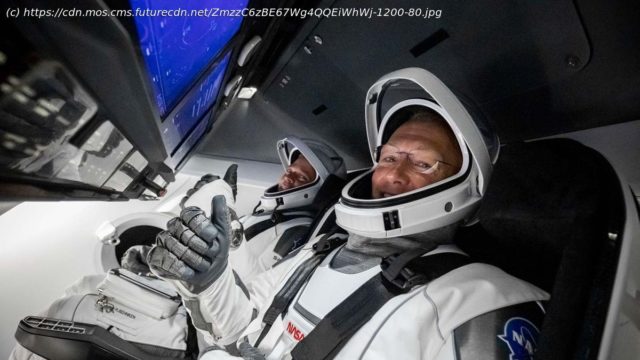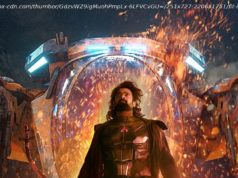Now that SpaceX can ferry astronauts to the ISS, NASA doesn’t have to worry about asking a now-sanctioned Russia for a ride.
Space has always been a geopolitical battlefield, from the first Soviet satellite to the brewing space race between China and the United States. This time, thanks to SpaceX, NASA can sidestep the thorny issue of just-announced Russian sanctions following that country’s invasion of Ukraine. Among the sanctions that US President Joe Biden announced on Thursday was a ban on high tech and aerospace technology exports, which will almost certainly disrupt cooperative space efforts between the two countries, especially as it relates to the operation of the International Space Station (ISS). While there are still a host of implications for space to consider given the recent developments, there is at least one thing NASA won’t have to worry about: awkwardly asking to hitch a ride aboard a Russian rocket to get its astronauts to the ISS. After the retirement of NASA’s Space Shuttle program in 2011, NASA had no way to ferry astronauts from US soil to outer space, so it had to turn to Roscosmos, Russia’s space agency, and book passage on its Soyuz rockets and at a pretty hefty premium. While this in itself isn’t nefarious – we actually want these kinds of mixed flights between nations – it was expensive since the Soyuz rocket isn’t a very efficient system and bears a lot of similarities to NASA’s space operations prior to 2012. The Soyuz family of rockets (first introduced in 1966) are “expendable” rockets that are discarded and either burn up in the atmosphere or crash down into the ocean after using up their fuel. Understandably, this is an expensive proposition, and NASA was paying Roscosmos as much as $90 million for a seat on its rocket launches. This also put NASA in a pinch, since riding on the rocket of a geopolitical rival is subject to any number of choke points where Russia could effectively cut off NASA’s access to space in the event of a conflict, like, say, Russia invading Ukraine.






